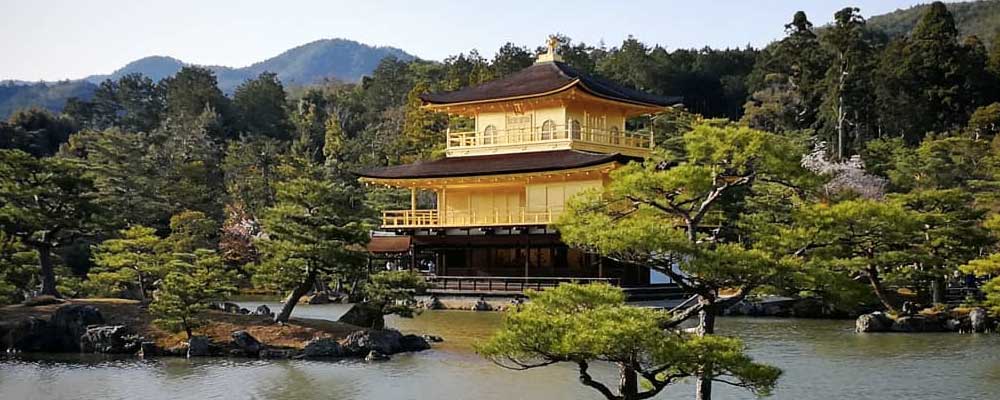
Problems
search
- infoNotes
What part of "no" don't you understand?
The Japanese are famously reluctant to say the word "no", and in fact the language's closest equivalent, いいえ iie, is largely limited to denying compliments you have received. ("Your Japanese is excellent! "Iie, it is very bad!"). But there are numerous other ways of expressing "no", so here are a few to watch out for.
- いいです。 結構です。
Ii desu. Kekkō desu. - "It's good/excellent." Used when you don't want more beer, don't want your bentō lunch microwaved, and generally are happy to keep things as they are. Accompany with teeth-sucking and handwaving to be sure to get your point across - both of these expressions may be interpreted as positive responses if you don't include enough nonverbal indications to the contrary.
- ちょっと難しいです・・・
Chotto muzukashii desu... - Literally "it's a little difficult", but in practice "it's completely impossible." Often just abbreviated to sucking in air through teeth, saying "chotto" and looking pained. Take the hint.
- 申し訳ないですが・・・
Mōshiwakenai desuga... - "This is inexcusable but..." But no. Used by sales clerks and such to tell you that you cannot do or have something.
- ダメです。
Dame desu. - "It's no good." Used by equals and superiors to tell you that you cannot do or have something. The Kansai equivalent is akan.
- 違います。
Chigaimasu. - "It is different." What they really mean is "you're wrong". The casual form chigau and the Kansai contraction chau are also much used.
- いいです。 結構です。
- Leave me alone. ほっといてくれ。 Hottoitekure.
- Don't touch me! さわらないで! Sawaranaide!
- I'll call the police. 警察をよぶよ!。 Keisatsu o yobu yo!
- Police! 警察! Keisatsu!
- Stop! Thief! 動くな! 泥棒! Ugokuna! Dorobō!
- I need your help. 手伝ってください。 Tetsudatte kudasai.
- It's an emergency. 緊急です。 Kinkyū desu.
- I'm lost. 道を迷っています。 Michi o mayotte imasu.
- I lost my bag. 鞄をなくしました。 Kaban o nakushimashita.
- I dropped my wallet. 財布をおとしました。 Saifu o otoshimashita.
- I'm sick. 病気です。 Byōki desu.
- I don't feel well. 具合がわるいです。 Guai ga warui desu.
- I've been injured. けがをしました。 Kega o shimashita.
- Please call a doctor. 医者を呼んでください。 Isha o yonde kudasai.
- Can I use your phone? 電話を使わせていただけますか? Denwa o tsukawasete itadakemasu ka?
- Medical Emergencies
- I need a doctor. 医者に見てもらいたいです。 Isha ni mite moraitai desu.
- Is there a doctor who can speak English? 英語の出来る医者はいますか? Eigo no dekiru isha wa imasu ka?
- Please take me to a doctor. 医者に連れていって下さい。 Isha ni tsurete itte kudasai.
- My wife/husband/child is sick. 妻・旦那・子供が病気です。 Tsuma/danna/kodomo ga byōki desu.
- Please call an ambulance. 救急車を呼んで下さい。 Kyūkyūsha o yonde kudasai.
- I need first aid. 応急手当を下さい。 Ōkyū teate o kudasai.
- I need to go to the emergency room. 救急室にいかなければなりません。 Kyūkyūshitsu ni ikanakereba narimasen.
- How long will it take to get better? 治るのはどの位かかりますか? Naoru no wa dono kurai kakarimasu ka?
- Where is a pharmacy? 薬局はどこですか? Yakkyoku wa doko desu ka?
- Allergies
- I'm allergic to ... . 私は ... アレルギーです。 Watashi wa ... arerugii desu.
- ... antibiotics 抗生物質 kōsei busshitsu
- ... aspirin アスピリン asupirin
- ... codeine コデイン kodein
- ... dairy products 乳製品 nyūseihin
- ... food coloring 人工着色料 jinkō chakushokuryō
- ... fungus 菌類 kinrui
- ... MSG 味の素・グルタミン酸ナトリウム ajinomoto/gurutamin san natoryūmu
- ... mushrooms キノコ kinoko
- ... peanuts ピーナッツ pīnattsu
- ... penicillin ペニシリン penishirin
- ... pollen 花粉 kafun
- ... seafood 魚介類 gyokairui
- ... sesame ゴマ goma
- ... shellfish 貝類 kairui
- ... tree nuts, fruits or berries 木の実 kinomi
- ... wheat 小麦 komugi
- Explaining Symptoms
- My ... hurts. … が痛い。 ... ga itai.
- Feeling unwell. 気分が悪い Kibun ga warui.
- Having a fever. 熱があります。 Netsu ga arimasu.
- Coughing a lot. 咳がでます。 Seki ga demasu.
- Feeling listless. 体がだるい。 Karada ga darui.
- Feeling nauseated. 吐き気がします。 Hakike ga shimasu.
- Feeling dizzy. めまいがします。 Memai ga shimasu.
- Having the chills. 寒気がします。 Samuke ga shimasu.
- Swallowed something. 何かを呑んでしまいました。 Nanika o nonde shimaimashita.
- Bleeding. 出血です。 Shukketsu desu.
- Broken bone. 骨折です。 Kossetsu desu.
- He/she is unconscious. 意識不明です。 Ishiki fumei desu.
- Burned. 火傷です。 Yakedo desu.
- Trouble breathing. 呼吸困難です。 Kokyū konnan desu.
- Heart attack. 心臓発作です。 Shinzō hossa desu.
- Vision worsened. 視力が落ちました。 Shiryoku ga ochimashita.
- Cannot hear well. 耳が良く聴こえません。 Mimi ga yoku kikoemasen.
- Nose bleeds a lot. 鼻血が良くでます。 Hanaji ga yoku demasu.
- Body Parts
- head 頭 atama
- face 顔 kao
- eyes 目 me
- ears 耳 mimi
- nose 鼻 hana
- throat 喉 nodo
- chin 顎 ago
- neck 首 kubi
- shoulders 肩 kata
- chest 胸 mune
- waist 腰 koshi
- arms 腕 ude
- wrists 手首 tekubi
- fingers 指 yubi
- hands 手 te
- elbow 肘 hiji
- buttocks (お)尻 (o)shiri
- thigh 腿 momo
- knee 膝 hiza
- legs, foot 足 ashi
- Extreme Weather
- Blizzard 吹雪 fubuki
- Earthquake 地震 jishin
- Flood 洪水 kōzui
- Landslide 地滑り jisuberi
- Tsunami 津波 tsunami
- Typhoon 台風 taifū
- Volcano eruption 噴火 funka